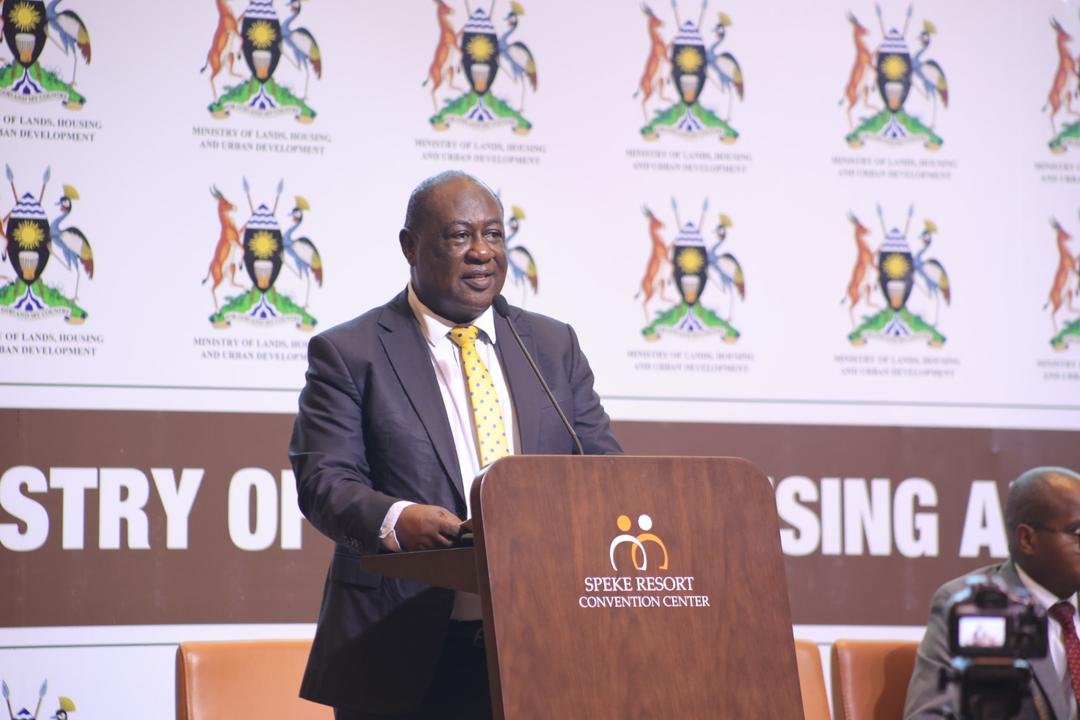
The Ministry of Lands is taking significant steps in boosting Uganda’s economy through advocating for suitable land reforms to promote overall productivity.
The Minister of State for Lands, Sam Mayanja, highlighted the urgent need to address the issue of unregistered land in Uganda, particularly customary land, which constitutes a significant portion of the country’s landmass.
Speaking at the International Land Conference at the Speke Resort Munyonyo on November 21, 2024, Mayanja said that with Uganda’s population projected to reach 50 million by 2035 and 100 million by 2050, the need for industrialization, urbanization, and service sector development becomes increasingly urgent.
He added that for Uganda to enhance land use and protect ecological systems, the government is considering several interventions, including lowering surveying costs and issuing digital titles for all tenure systems while formalizing communal land ownership into legal entities.
According to Mayanja, only 30% of Uganda’s land is currently registered, leaving the remaining 70% vulnerable to disputes and hindering its potential for commercial agriculture and investment.
He, however, added that in order to overcome this challenge, Uganda is implementing various initiatives, including the Parish to Market initiative in the Acholi sub-region, aimed at promoting socio-economic transformation through the utilization of customary land.
“Despite initial resistance due to misinformation, the government is committed to fostering a market-driven approach to land use and unlocking the full potential of its land resources and driving economic growth,’’ Mayanja said.
Read Also: Nabakooba Cautions Public against Forgery of Land Documents
The minister further noted that to support this transition, Uganda established a Land Information System in 2005 to document and manage land ownership and usage, which has helped in effective land administration and sustainable development.
Mayanja also acknowledged the significant disparity in labor force distribution between Uganda and industrialized countries.
“70% of Uganda’s labor is in agriculture compared to less than 1.4% in the United States and the United Kingdom,’’ he noted.
He added that for Uganda to enhance land use and protect ecological systems, the government is considering several interventions, which include lowering surveying costs and issuing digital titles for all tenure systems while formalizing communal land ownership into legal entities.
The conference was organized by the Ministry of Lands in partnership with the World Bank and the European Union under the theme Land Reforms for an Inclusive Socio-Economic Transformation and Climate Change Mitigation.
Research indicates that land conflicts are a major issue in Uganda, affecting around 33-50% of landholders. With these conflicts, the social stability and economic development of the country can be threatened, as agriculture accounts for a large portion of the country’s labor force and GDP. Over 90% of domestic disputes in Uganda are related to land conflicts. According to IGAD, 5%, which accounts for 310,000 households, are directly affected. However, with the setting of land reforms, these issues can be resolved.